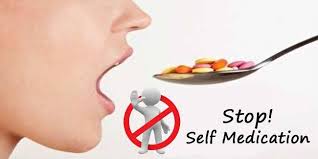SELF-MEDICATION OF ANTIBIOTICS

SELF-MEDICATION OF ANTIBIOTICS
SELF-MEDICATION OF ANTIBIOTICS
It was Sunday, and as expected, it was a harsh day for anyone in the Pharmacy. There was a huge queue of patients expecting medicines and we were stressed as we would be on Sunday. The sun was adding up to the heat by making it unbearable for the people in the queue and us. It must have crossed 30°C that day. Everyone was losing patience and we were okay with it as we would be on a typical sunny Sunday.
As I am supposed to be doing every day, I was dispensing and counselling. It gets tiresome when you have to counsel a person who has 12 medications to take in a day. Just after I have done it, an interesting young guy appeared in the counter asking medicine for Typhoid. I was surprised and asked him for a prescription. He said that he did not have any prescription, so I just apologized for the inconvenience and asked him to rather visit a doctor first. But he was persistent. He even told me that he wanted a medicine that was taken twice a day and was 200mg each dose. I apologized again and asked him to visit a doctor again. His reason, as he told me was that visiting a doctor and getting the lab tests would cost him a lot of money and he had taken the same medicine for fever last year and it had worked. I was shocked to hear his answer and I denied to give him antibiotic without any proper diagnosis of typhoid. I even counseled him about antibiotic resistance and the adverse effects that he could have. He was adamant and wouldn’t move. Seeing my same answer at his repeated demand, he moved from there after discussing for almost quarter an hour.
But did our persistence in the rules and ethics solve the problem? Looks like No. He could get the same medicine without a problem from the pharmacy nearby.
This incident was just an example of whatever happens throughout the country innumerable time every day, with the difference of persistence from the Pharmacist’s side (not all pharmacists would bother counselling the patient for quarter an hour). I myself have faced such cases of irrational self-medication and this incident made me write about the issue. If this kind of practice continues, is it good for anyone of us?
We shouldn't be expecting good dispensing practices from the “nonprofessionals” whom some pharmacists give the responsibility to “rationally” dispense on their behalf. Rather, we should be critical about our own practices. We are not a bank employee making a deal on car loan. We deal on the health of people. We are the bridge between patients and their medicine use. It is our part of duty to counsel a patient on proper diagnosis before any kind of self-medication. Every pharmacist knows the treatment of bacterial tonsillitis, but was our curriculum in the School of Pharmacy focused on diagnosing the disease or production, supply and dispensing drugs and its effect upon human body? If we are not trained that way, why should we work against the work ethics when the stakes are phrases like “Impending Antibiotic Resistance”, “Ethical Misconduct”, “Negligence at work”.
Every pharmacist will now bring up the case of the patients who don't want to visit the health centers and are adamant to receive treatment from our pharmacies. But who spoiled the patients in the first place? It is easy to blame others, but don't some of us lend our license to “non-professionals”? Don’t some of us focus more on our pocket than the health of the person standing in front of us? Isn’t it our responsibility to suggest concerned authorities to make institutional policy against OTC dispensing of antibiotics? A strong local alliance between pharmacists can definitely help in solving the issue. If they don't get a pharmacy to buy medicines without prescription, why won't they just visit a health center to produce one?
We can easily succeed by strengthening the public health insurance system. Why would an insured person visit a pharmacy to pay for the medicines without a prescription when they could just visit a health center and get everything for the premium they have already paid? But when will our health insurance system be strong enough to control self-medication completely? Not soon. So, it's we pharmacists who should become socially responsible about the situation and take the initiative to adequately control self-medication for the time being.
Yunima Sapkota
(Pharmacist)
 YUNIMA SAPKOTA |
October 06, 2018
YUNIMA SAPKOTA |
October 06, 2018
 CORONA AWARENESS
CORONA AWARENESS
 All You should Know About Drug-Food Interaction And Pharmaist Role.
All You should Know About Drug-Food Interaction And Pharmaist Role.
 Can you use an inhaler after the expiration date?
Can you use an inhaler after the expiration date?
 औषधी खाने बेला कती पानी अावश्यकता
औषधी खाने बेला कती पानी अावश्यकता
 GET WELL SOON CARD -शिघ्र स्वास्थ्य लाभ कार्ड
GET WELL SOON CARD -शिघ्र स्वास्थ्य लाभ कार्ड
 Antibiotic resistance
Antibiotic resistance